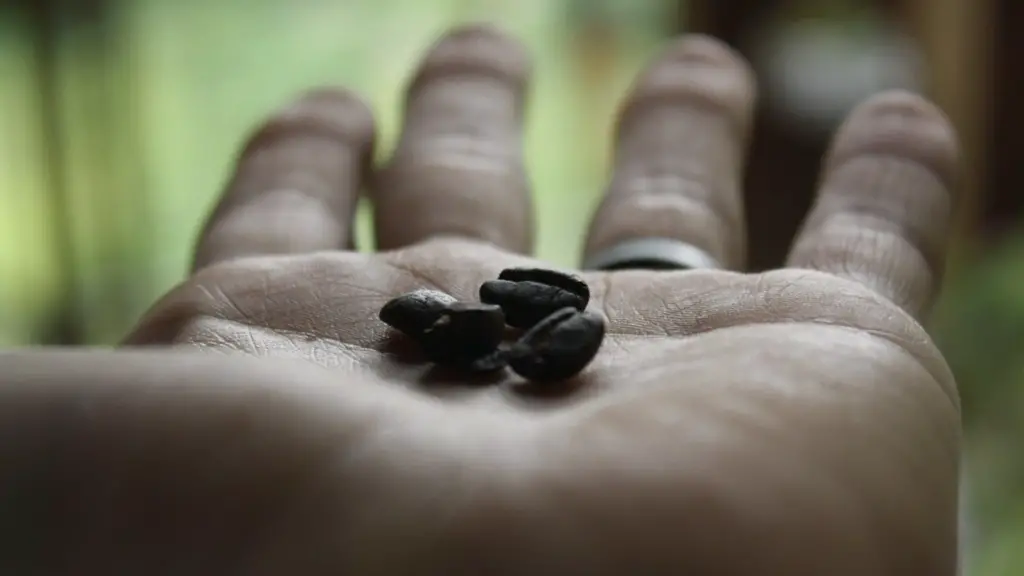Benefits of Coffee
Coffee has been a traditional morning pick-me-up, with many people relying on its caffeine content to get them through the day. It is widely accepted that consuming a moderate amount of coffee can have individual benefits, such as increased alertness, improved cognitive performance and mental clarity. These can be especially beneficial for those who are prone to fatigue, as the caffeine gives a much-needed boost. There is also research to suggest that drinking a moderate amount of coffee can potentially reduce the risk of developing lifestyle diseases, such as type 2 diabetes and Parkinson’s disease.
What’s more, studies were conducted looking into the health benefits of coffee, which suggested that consuming up to 6 cups per day can significantly reduce the likelihood of suffering from diseases of the digestive system, such as liver and colorectal cancer. Furthermore, these findings concluded that coffee can also help to reduce the risk of cardiovascular problems, as well as reducing levels of inflammatory markers.
However, not all types of coffee have the same health benefits. Raw beans naturally contain oil that can increase LDL cholesterol levels, whilst some instant and decaffeinated coffees are not always produced using the same quality standards as fresh grounds. As with any food product, it’s important to thoroughly check the ingredients before adding them to your diet.
Although coffee is generally perceived to be beneficial, it should be kept in moderation. Too much coffee can lead to feelings of anxiety and restlessness, often symptomatic of caffeine intolerance. If you feel that your coffee consumption is having an adverse effect on your health, it may be best to completely remove it from your diet, or reduce the daily intake significantly.
Benefits of Energy Drinks
Energy drinks, such as Red Bull and Monster, are increasingly popular due to their high caffeine content, although they contain much more than just caffeine. They usually contain B-vitamins, usually in the form of riboflavin, thiamine and niacin, as well as other ingredients such as taurine and guarana. It is here that we can see the potential benefits of such beverages.
The combination of B-vitamins and sugar-free caffeine can help to increase alertness and performance, making them ideal for those who require increased physical and mental concentration for tasks such as study or sport.
With that in mind, researchers have concluded that consuming the recommended daily limit of one or two energy drinks per day appears to be safe and healthy for both short and long-term use.
However, it’s important to note that energy drinks can become addictive if consumed in large amounts, as the body can quickly become accustomed to the large doses of caffeine, sugars and additives. Therefore, it’s advisable to limit your consumption in order to prevent any unwelcome side-effects.
It is also worth noting that energy drinks are not necessarily suitable for those who are pregnant or under the age of 18. Pregnant women should pay particularly close attention, as caffeine can have negative long-term effects on the fetus, whilst those under the age of 18 should avoid altogether due to potential side-effects such as irritability and increased heart rate.
Coffee Vs. Energy Drinks
Coffee and energy drinks both offer potential benefits through their caffeine and B-vitamin content, but should be limited in order to avoid any potential adverse side-effects. Therefore, it is important to decide the most suitable form of beverage for your individual needs.
For those who require a quick fix of energy to get through their day, an energy drink may be ideal, as it contains much higher amounts of caffeine than traditional coffee. However, drinking multiple cans of energy drink per day can be detrimental to your long-term health, as the large doses of caffeine can quickly become addictive.
On the other hand, coffee is usually perceived as being a healthier option, particularly with its potential in reducing the risk of certain lifestyle diseases, such as type 2 diabetes. Coffee also usually contains fewer ingredients, making it easier to gauge the caffeine levels and nutritional benefits.
In conclusion, whilst both coffee and energy drinks can have their own individual benefits, the most suitable option ultimately depends upon the individual. Therefore, it is important to assess your position and find the most effective way to stay fuelled throughout the day.
Impacts on Attention and Concentration
It is sometimes necessary to stay alert through the use of stimulants such as caffeine, in order to remain productive and focused. Therefore, it may come as no surprise that many people opt for either coffee or energy drinks in order to achieve greater attention and concentration.
Whilst both drinks stimulate the central nervous system by activating the release of glutamate and dopamine within the brain, energy drinks may offer an additional benefit due to their extra B-vitamin content. These B-vitamins help to convert glucose into energy, potentially assisting in improving focus and clarity.
Nevertheless, it is important to note that an excessive intake of caffeine can lead to the opposite effect of what was intended. Caffeine may act as a stimulant in small doses, but too much can cause headaches, confusion and decreased concentration levels. Similarly, the high sugar content found within some energy drinks can cause further levels of cognitive impairment.
Therefore, it is important to recognize the difference between an effective dose and a dangerous overdose, both of which may respond differently from person-to-person.
Caffeine Intoxication
Whilst moderate consumption may be beneficial for some, consumption at an excessive level can lead to the serious condition of caffeine intoxication. This is not only caused by the consumption of beverages such as coffee and energy drinks, but can also be the result of overdosing on caffeine tablets or supplements.
Symptoms of caffeines intoxication include restlessness, a rapid heartbeat and insomnia. In extreme cases, symptoms can worsen and become life-threatening. Furthermore, it is easy to overlook the levels of caffeine intake when using a drink as part of a diet or lifestyle. In such cases, it is important to remain aware of what is being consumed and in what quantities in order to avoid potential problems.
It is therefore always advisable to speak to a doctor or health professional for advice on the use of such products, especially when large amounts are being consumed on a daily basis. It is better to be safe than sorry when it comes to health, and many sources of information are available to ensure that you’re making the right decisions.
Should Athletes Use Energy Drinks?
Whilst energy drinks are mainly associated with heavy student use, athletes often turn to them when looking for a source of energy to help boost their performance. However, it is important to note that the caffeine content in energy drinks can lead to increased levels of stress within the body. This can have a negative impact on endurance performance and recovery time, gradually leading to muscular fatigue.
It is also important to consider that energy drinks are often laden with high sugar content. Whilst the sugar can provide short-term energy, this often results in a slump in energy levels and an increased risk of developing diabetes.
For these reasons, athletes should avoid the consumption of energy drinks for the purpose of boosting performance. Instead, it is better to opt for healthier alternatives such as oats, nuts and lean sources of protein. If a caffeine-boost is necessary, it may be wise to opt for alternatives, such as black and green tea, which contain much lower amounts of sugar and fewer artificial ingredients.
In summary, it is always best to practice healthy methods of performance enhancement, and to invest some extra time in researching long-term options, such as weight-training and other forms of aerobic exercise.
Should Children Consume Caffeinated Drinks?
Caffeine, particularly when consumed in large amounts, can have adverse effects on children’s health, such as restlessness and attention-deficit. Whilst the occasional cup of coffee or cup of tea may be deemed suitable, the general rule is that children should seek an alternative source of fuel.
This is especially the case for those who undergo a physical activity that requires concentration, such as sport or exams, as the caffeine present in popular drinks can prove detrimental in such instances. The high sugar content in energy drinks is also a major consideration. As the body is unable to process such large amounts, it often results in increased levels of concentration and alertness, followed by a sugar crash.
Instead of relying on energy drinks or coffee, children should turn to natural sources of energy. Drinking plenty of water throughout the day can help to increase alertness, whilst consuming healthy food such as fruits, nuts, and whole grains can help to maintain focus and cognitive performance.
In conclusion, it is always best to ensure that your child is receiving the right nutrients, and it may be wise to invest time in healthy alternatives, such as proper rest, exercise and diet.





